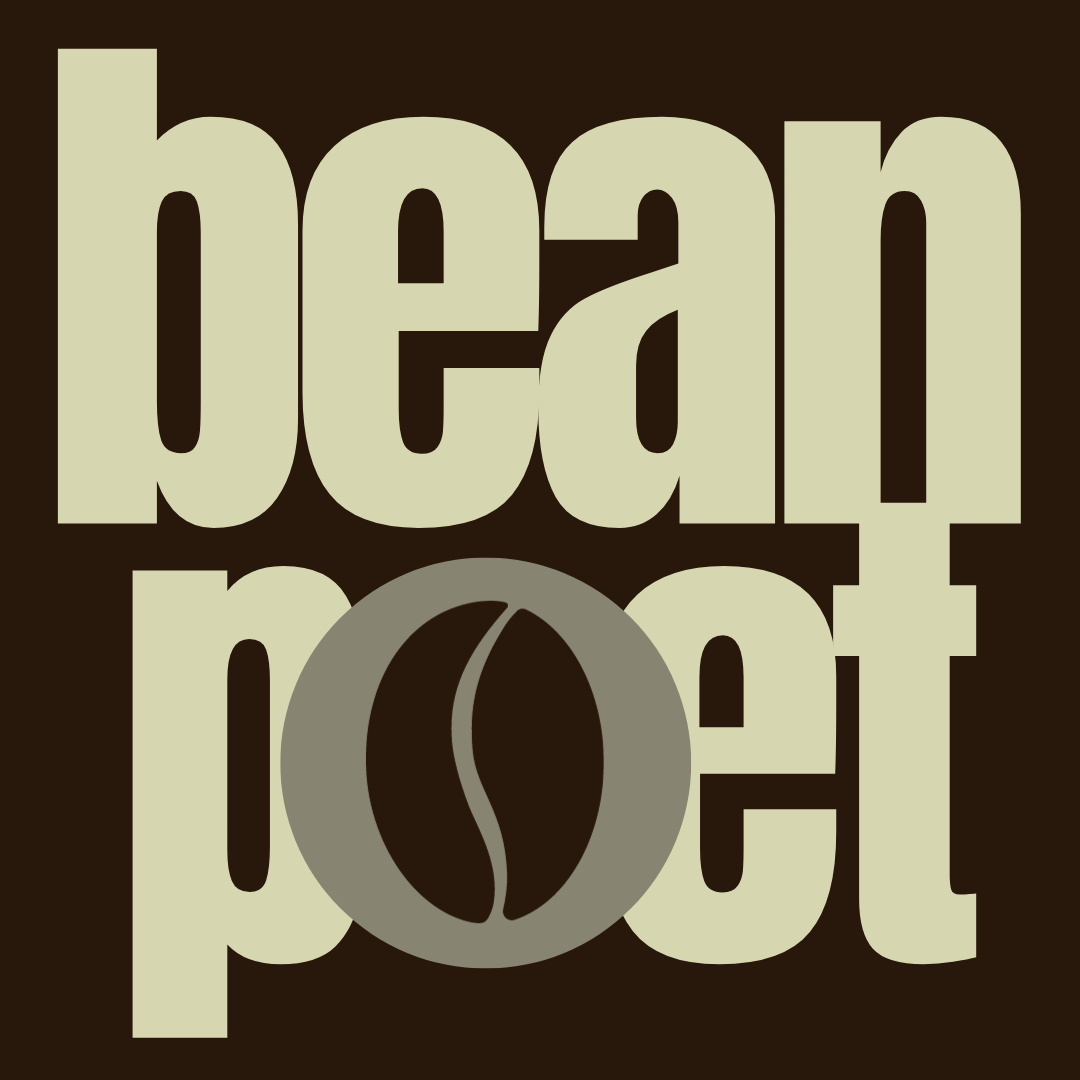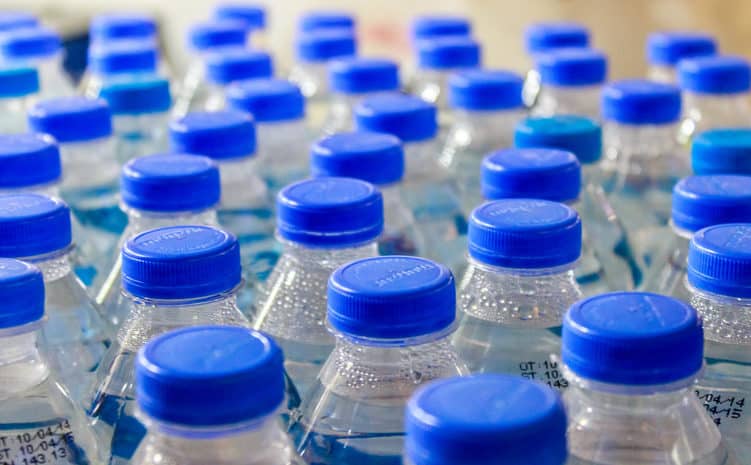Just so you know, as an Amazon Associate we earn from qualifying purchases made via bold red links, buttons or images.
Last Updated on January 6, 2024
Fresh beans from a good roaster ground just before brewing is the central mantra for creating great coffee. But have you considered the water you’re introducing to those beautiful beans? We’ve explored the best bottled water for coffee and made a list of our top options. They are:
- Crystal Geyser Alpine Spring Water
- Volvic Natural Spring Water
- Evian Natural Spring Water
- Saratoga Natural Spring Water
- Mountain Valley Spring Water
- Acqua Panna Natural Spring Water
Water chemistry has a huge impact on coffee flavour, as the folks at Balance Coffee explain here. Coffee needs the right minerals at the right concentrations. One option is to start with distilled water and add minerals yourself to achieve the optimum balance. But if you want to keep things simple, you can just use one of the six bottled water brands discussed here.
Crystal Geyser Alpine Spring Water
- 30 – 8 fl oz plastic bottles per case, 2 cases included
- Crystal Geyser Alpine Spring Water is only captured directly at authentic natural springs
- This is not simply filtered tap water; when you drink Crystal Geyser Alpine Spring Water, you’re tasting fresh, pure spring water bottled right at one of our seven natural spring sources
Crystal Geyser Alpine Spring is bottled at seven protected natural springs around the U.S. It is consistently right in the neutral sweet spot, having a pH of 7. While minerality varies slightly depending on which spring the water came from, this water is on the softer side. The total dissolved solids (TDS) range between 90 and 110 milligrams per litre.
Similar concentrations of magnesium and calcium offer balance to brewing, while the low minerality protects against over-extraction during longer brewing methods.
Crystal Geyser Alpine Spring was founded in 1990 and remains an independent, family-run enterprise. The company invests in environmental measures that will both protect their product and ensure the vibrancy of the ecosystems that rely on these springs.
Volvic Natural Spring Water
- Pack of 24, 0.5 liter bottles (total of 12 liters)
- Natural Spring Water filtered through Volcanic rocks in the Auvergne region.
- Unique mineral balance.
Volvic is another dead-on neutral pH spring water, bottled in France at the Clairvic Spring north of the Puy de Dôme. The Puy de Dôme is a dormant volcano, and the surrounding bed of lava rock offers a high level of natural filtration. The spring has a balanced mineral profile containing calcium and magnesium in moderate amounts, and other trace minerals. TDS in Volvic is measured at 109 milligrams per litre.
Like Crystal Geyser Alpine Spring, Volvic’s similar amount of calcium and magnesium help to balance acidity and mouthfeel in the cup.
Volvic is active in improving water access in Africa and creating healthy water drinks with low sugar, especially for kids. Volvic’s parent company, Danone, invests in a variety of environmental initiatives including regenerative agriculture, carbon neutrality, and water stewardship.
They also celebrate their unique single source by offering a yearly three-day event where visitors can experience the area through sports and festivities.
Evian Natural Spring Water
Evian, also owned by Danone, is bottled from several natural springs on the south shore of Lake Geneva. It has a slightly higher pH of 7.8 and higher minerality than Volvic. It contains about three times as much calcium as magnesium and has a TDS of 300 milligrams per litre. The higher calcium concentration brings out a more silky mouthfeel and darker, creamier flavours during brewing.
They’ve been a public company since 1859. Danone, then the BSN group, acquired the brand in 1970. In addition to parent company Danone’s various environmental initiatives, Evian is striving to become totally carbon neutral by 2020 and use exclusively recycled packaging by 2025.
Saratoga Natural Spring Water
- Saratoga Spring Water starts with natural spring water and ends with a crisp, clean taste and refreshing finish for an experience you’ll love
Bottled from natural springs in Saratoga Springs, N.Y., Saratoga Natural Spring Water has a pH of 7. It has low minerality and a TDS of 73 milligrams per litre, with higher calcium than magnesium. This is another water on the softer side, which may be more suitable for slower brewing methods or cutting down the acidic flavours of coffee.
The Saratoga Spring Water company was founded in 1872 and remains active to this day creating a variety of still and sparkling bottled water products. They bottle in glass at a New York facility close to the water source. As a company, they are committed to environmental stewardship and supporting American-made products.
Mountain Valley Spring Water
- Mountain Valley Water, Water Spring, 33.8 Fl Oz, 12 Pack
Mountain Valley Spring Water is bottled in Hot Springs, Ark., where commercial bottling began in 1871. It has a TDS of 221 and a higher pH of 7.7, one of the harder profiles on our list. As such, it could be a good choice for faster brew methods like espresso and Aeropress.
Mountain Valley was the first bottled water to be distributed all over the U.S. and has been served in the U.S. Senate since 1920. The company is a conscientious guardian of the pristine landscape that surrounds the spring.
Acqua Panna Natural Spring Water
- Bottled at the source in Tuscany; Italy SNAP and EBT Eligible item
- 50% recycled plastic bottle excludes label amp cap amp fully recyclable
- The unique mineral balance of Acqua Panna offers an unmistakable taste that makes it perfect for pairing with food and wine; harmonizing and elevating each dining and taste experience.
- Crafted by nature; Acqua Panna is slowly filtered through the sun-drenched hills of Tuscany. It is a symbol of Tuscan taste – celebrating the richness of its history; heritage; and culture. Savor the unmistakable taste in every bottle. Acqua Panna
- Naturally Alkaline with a pH of 8.0 or higher
Acqua Panna has a higher pH of 8.2 and medium minerality with TDS of 121 milligrams per litre. A product of Italy, this water is bottled from a natural spring high in the mountains of Tuscany. The minerality is well balanced for extraction but some may find that the higher pH causes the coffee to taste more dull.
Commercial bottling began at the spring in 1880 and it later became the first still water to be bottled in plastic. The Acqua Panna brand is now owned by San Pellegrino, a subsidiary of the Nestlé company.
Our recommendation
Our top pick for the best bottled water for coffee is Crystal Geyser Alpine Spring. It contains adequate minerals to develop a robust flavour profile in coffee but not so much that it could contribute to scale inside delicate equipment like an espresso machine. It’s high-quality, widely available, and makes a delicious cup of coffee.









Seems like a waste of good (expensive) bottled water but I tried this because I don’t drink a lot of coffee but I’m very picky about my coffee so if making it with a specific bottled water would give me an even better cup of coffee than usual, why not? So I brewed my coffee with all the waters listed in this article (individually)- except Volvic – store didn’t have that one – and I found no difference in taste between coffee made with any of them and coffee made with my tap water, and i live in a big city so it’s not like I have access to some “special” tap water.
I tend to find that “reviews” made by Amazon-related companies need to be read cautiously. Obvious potential conflicts of interests and profit motivations could easily bias reviews. IMO
Hence it does not surprise me that you did not find any differences in your coffee when using the various recommended bottled waters.
I am new to this subject of water’s different characteristics that can and do influence coffee brewing/extractions. An obvious shortcoming of this “review” is that they totally ignore the dimension of “alkaninity” which many other non-product related sources claim is an extremely important characteristic of water than needs to be considered for brewing coffee; not the same as alkaline.